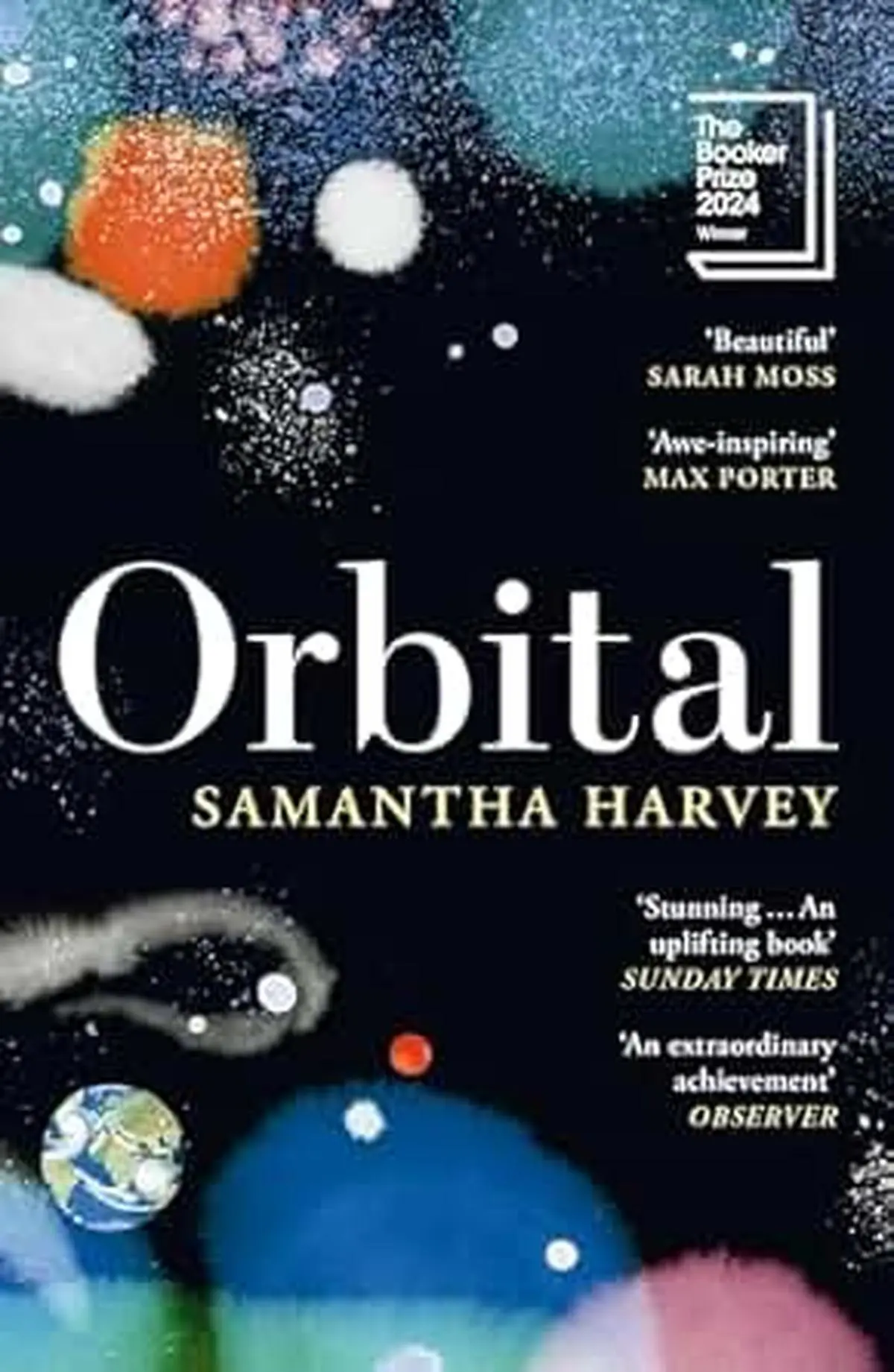BOOK REVIEW | Samantha Harvey’s Orbital’s Pertinent Political Point is Held Back by a Weak Narrative
Six astronauts circle the earth aboard the International Space Station. How do they feel and what do they see in the course of one earth day? This is the premise of Samantha Harvey’s Orbital, which won the 2024 Booker Prize. A slim 136-page affair set in space, it is neither science fiction nor speculative fiction. It operates in the straightforward register of realism.
Anton, Roman, Pietro, Shaun, Nell, and Chie are on a nine-month space mission where they will conduct scientific experiments and collect data. Daily life is privilege and claustrophobia in equal parts. Inside the metal contraption they call home, the six engage in mundane tasks—eating food out of sachets, organising their trash, working out on the treadmill—alongside the science. But they are also blessed; they get to endlessly gaze at the stars, the universe, and the blue planet swirling 250 miles below them. The sun rises and falls, continents appear and disappear, cities glimmer and rivers rush. Earth’s pageantry is breathtaking, from the “apricot desert of Takla Makan” to Santiago “in a cloud-hazed burn of gold” to the Nile, “a spillage of royal-blue ink”.
Orbital
By Samantha Harvey
Vintage
Pages: 144
Price: Rs.499
Encased in the solitude of this gravity-free, time-twisted existence, the astronauts ponder the past, present, and future. Chie ruminates on losing her mother; Shaun reflects on a famous painting and its many meanings; Anton contemplates a cherry-sized lump on his neck and the state of his sterile marriage. Distance allows them perspectives not only on their own lives but on the nature of life itself and their place in the universe. Given the slow, reflective tone of the book, it is no surprise to learn that Harvey studied philosophy in college and at one time worked in an astronomy museum.

Samantha Harvey’s Orbital won the 2024 Booker Prize.
| Photo Credit:
By special arrangement
Orbital is made up of 16 chapters, each representing one orbit of the earth. It offers snapshots of life in space. Toilets are political: separate for Russian cosmonauts and the others (American, Japanese, British, Italian). Exercise is a must so that their bodies do not collapse from disuse once they return to gravity. The six sleep with straps and monitors and frequently scan their brains. All their burnable waste will eventually turn into a swill of debris orbiting the earth.
Also Read | India’s environmental pioneers: The forgotten story
“I’ve never been in space, I could never go to space, and there are humans who’ve been to space who write very lucidly about it, so who am I to do this?” Harvey told the BBC, adding that she started the book before the pandemic but set it aside in a “crisis of confidence”. Nevertheless, once the pandemic hit and people were barricaded in by lockdowns, Harvey found herself drawn to the manuscript again. Much like the astronauts trapped in their metallic shells, human beings on earth were also suddenly cut off from one another. Harvey spent hours watching the feed from the International Space Station.
Meditation on time
Orbital stretches the boundaries of the novel form. It bobs along plotlessly; there is no discernible beginning, middle, and end, no conflict that is set up and resolved. The only “event”, so to speak, is a developing typhoon on earth. Clearly, Orbital seeks to be a meditation on time, mortality, beauty, the fragility of our species. The overarching point is this: we have one precious planet, let us make sure that climate change, vicious politics, and armed conflict do not ruin everything.
The Booker Prize judges remarked on the book’s “beauty and ambition” and hailed Harvey’s “language of lyricism and acuity”. She is a gifted prose stylist: “The moon is gibbous and gorgeously fat”, islands are “like cell samples, the atolls opal lozenges”, while “[t]he Milky Way is a smoking trail of gunpowder shot through a satin sky”.
Saying the obvious
But is it possible for a novel to be too lyrical? So focussed on language that it ends up drawing far too much attention to itself? I would argue that this is the trap Orbital falls into. I struggled with the novel. Dare I say, I found it boring.
Also Read | In ‘Shattered’, Hanif Kureishi writes through paralysis
Too often the writing veers towards the trite and the clichéd. For instance: “They look down and they understand why it’s called Mother Earth…. They all make an association between the earth and a mother, and this in turn makes them feel like children.” Or this: “Can humans not find peace with one another? With the earth?… Can we not stop tyrannising and destroying and ransacking and squandering this one thing on which our lives depend?”
This is a manifesto disguised as a novel and makes no secret of its intent. The characters feel undifferentiated, like vehicles here to telegraph a message rather than stand out as people we can care about. This, too, seems by design: the main cast, she writes, “are not quite distinct from one another, nor from the spaceship”.
All of this runs the risk of turning tedious and repetitive. In how many different ways do we need to be told that the planet is sui generis and needs protection? Orbital has a pertinent political point and great gobs of style, but by the end, I was left unmoved.
Bhavya Dore is a freelance journalist who writes for various Indian and international publications.



